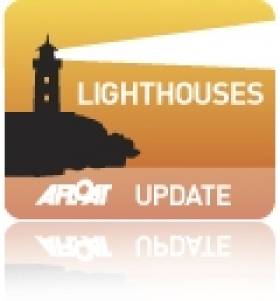Displaying items by tag: Open Tours
#lighthouses – Among the events celebrating the 500th anniversary of Trinity House this year which included the launch of a commemorative photographic book as previously reported, an 'Open Day' is to be held on 20 September at their headquarters in London, writes Jehan Ashmore.
The origins of Trinity House date to 1514 when Henry VIII granted the Corporation of Trinity House a royal charter establishing it as an authority in maritime matters within his kingdom. Later its remit was expanded to include responsibility for the provision and maintenance of aids to navigation within the waters of England, Wales and the Channel Islands.
On occasions, lighthouse tenders share duties by relieving other vessels working for the three General Lighthouse Authorities (GLA). Asides Trinity House the GLA is also made up by the Northern Lighthouse Board, responsible for Scottish and Isle of Man waters. Our Commissioners of Irish Lights whose remit covers all aids to navigation around the island of Ireland.
In May an official ceremony to mark the quincentenary of the Corporation of Trinity House took place at Trinity House located on Tower Hill overlooking the historic Tower of London. On that occasion another Open Day was held for members of the public to view the house built in 1794.
The House has a wealth of historic and valuable paintings plus antiques, bears out the UK's remarkable nautical heritage. One of its more recent acquisitions is the brass bell from the Royal Yacht Britannia which was decommissioned in 1997 and remains open to public tours in Leith, the port for Edinburgh.
On the next Open Day, there is no need to contact Trinity House, as interested day-visitors can simply arrive and wander about the House at their leisure and information available from expert guides. Visiting hours are confined only to that date (Saturday 20 Sept) between 10am – 3pm.
Otherwise tours of Trinity House are organised (but charged at a fee) on selected dates in 2015. Booking is essential and can be done by calling 00 44 (0)20 7481 6900 or emailing: [email protected] For futher information, click HERE.
























































